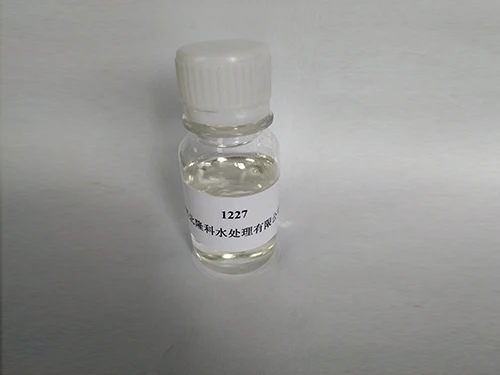flocculant water treatment
The Role of Flocculants in Water Treatment
Water is essential for life, and its quality is critical for both human health and environmental sustainability. As the global population continues to grow and industrial activities expand, the need for effective water treatment solutions has become more pressing. One of the most important methods for improving water quality is the use of flocculants in water treatment processes. This article explores the significance of flocculants, their mechanisms, types, applications, and the advantages they bring to water treatment.
Understanding Flocculants
Flocculants are chemical agents that promote the agglomeration of particles in water, forming larger clusters known as flocs. These flocs can be easily removed from water through sedimentation or filtration. The process of flocculation is essential in various water treatment processes, including drinking water purification, wastewater treatment, and the treatment of industrial effluents.
Flocculants work by neutralizing the negative charges on fine particles present in water. In natural water bodies, these particles often carry a negative charge due to the presence of organic substances and minerals. When flocculants are added to the water, they redistribute the charges, causing the particles to clump together. As the particles aggregate, they form larger flocs that can settle out of solution or be filtered out more efficiently.
Types of Flocculants
Flocculants can be broadly classified into two main categories inorganic and organic flocculants.
1. Inorganic Flocculants These are salts of metals such as aluminum and iron. Common inorganic flocculants include aluminum sulfate (alum) and ferric chloride. These agents are widely used due to their effectiveness in removing turbidity and are often favored for large-scale water treatment projects.
2. Organic Flocculants Derived from natural or synthetic polymers, organic flocculants are effective at lower dosages and can be customized for specific applications. Examples include polyacrylamide and chitosan. Organic flocculants have gained popularity because they tend to produce less sludge than inorganic options and can enhance the settling characteristics of certain particles.
Applications of Flocculants
Flocculants play a crucial role in several water treatment applications
flocculant water treatment

1. Drinking Water Treatment In municipal water systems, flocculants are used to remove suspended solids, bacteria, and organic matter from raw water sources. This process results in clean, safe drinking water, essential for public health.
2. Wastewater Treatment In the treatment of industrial and municipal wastewater, flocculants aid in the removal of contaminants and suspended solids. The use of flocculants can significantly reduce the biochemical oxygen demand (BOD) and chemical oxygen demand (COD) levels, making the treated water safer for discharge into the environment.
3. Clarification in Various Industries Flocculants are also widely applied in industries such as mining, food and beverage, and pulp and paper. They help in the clarification of process waters, allowing for efficient recycling and reducing water consumption.
Advantages of Using Flocculants
The incorporation of flocculants into water treatment processes provides several advantages
- Efficiency Flocculants enhance the speed and efficiency of solid-liquid separation, leading to shorter treatment times and reduced operational costs.
- Improved Water Quality By effectively removing suspended particles and contaminants, flocculants improve the overall quality of treated water.
- Reduced Sludge Volume Organic flocculants, in particular, produce less sludge than their inorganic counterparts, simplifying post-treatment disposal and management.
- Versatility Flocculants can be tailored to meet specific treatment requirements, making them suitable for a wide range of applications.
Conclusion
Flocculants are a vital component of modern water treatment technologies. Their ability to enhance particle aggregation and removal significantly contributes to the production of safe drinking water and the efficient treatment of wastewater. As water quality challenges continue to mount globally, the importance of flocculants in maintaining environmental standards and safeguarding public health cannot be overstated. Continued research and innovation in flocculant technology will ensure that water treatment processes remain effective and sustainable for future generations.
-
Understanding Polycarboxylic Acids: Properties, Applications, and Future PotentialNewsJul.28,2025
-
Scale Inhibitor Explained: How to Protect Your System from Limescale and Hard Water DamageNewsJul.28,2025
-
Scale and Corrosion Inhibitors: Essential Chemicals for Industrial Water System ProtectionNewsJul.28,2025
-
Polyaspartic Acid: A Biodegradable Polymer for Sustainable ChemistryNewsJul.28,2025
-
Isothiazolinones: A Versatile Antimicrobial Class with Industrial Power and Regulatory ChallengesNewsJul.28,2025
-
A Deep Dive into 2-Phosphonobutane-1,2,4-Tricarboxylic Acid (PBTC)NewsJul.28,2025





